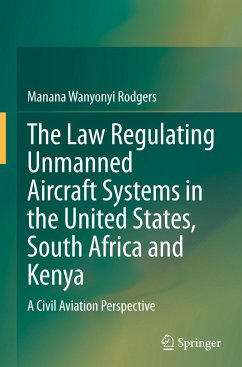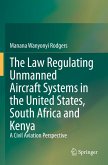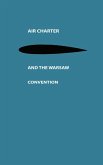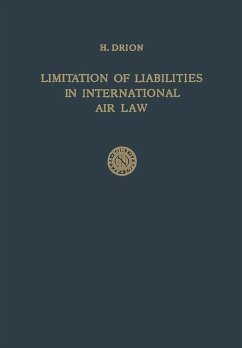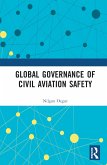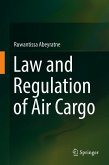This book evaluates how the legal, institutional and policy frameworks for Unmanned Aircraft Systems (UAS) in the United States, South Africa and Kenya have addressed the current needs and challenges involved in these systems' operation and integration into regulatory frameworks for civil aviation. It shows how the three states have developed their own constitutional frameworks, legislation, regulations, policies and strategic plans to address the challenges that emanate from integrating UAS into the civil aviation airspace.
The book details the three countries' integration experiences, investigating the extent to which existing international regulatory frameworks address the various concerns, and identifies the common thread that runs through UAS regulation, as well as each country's unique issues and path to integration. Recognizing that the approach for integration of UAS into civil aviation needs to be gradual and pragmatic, the book recommends scalingup institutional capacity, coordination and funding, and intensifying regional efforts to redefine and support UAS integration.
The book details the three countries' integration experiences, investigating the extent to which existing international regulatory frameworks address the various concerns, and identifies the common thread that runs through UAS regulation, as well as each country's unique issues and path to integration. Recognizing that the approach for integration of UAS into civil aviation needs to be gradual and pragmatic, the book recommends scalingup institutional capacity, coordination and funding, and intensifying regional efforts to redefine and support UAS integration.

